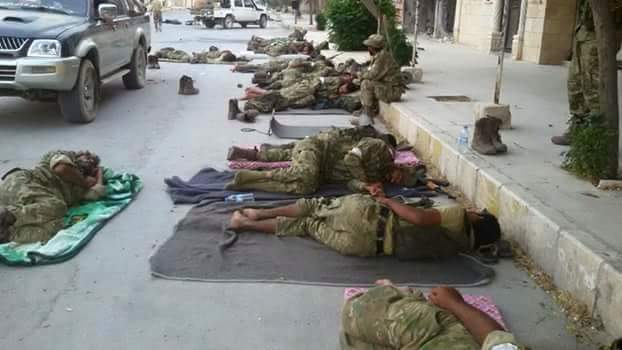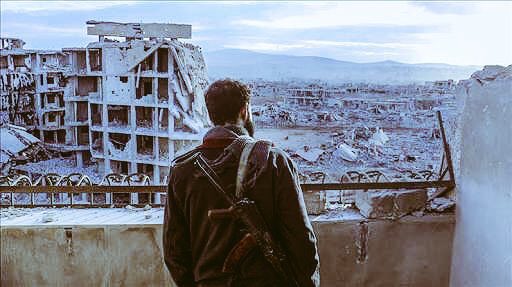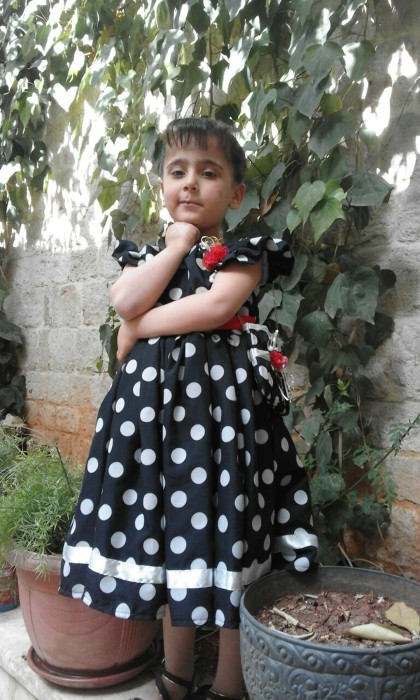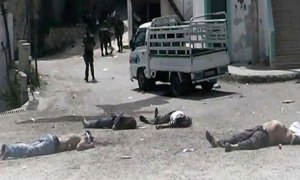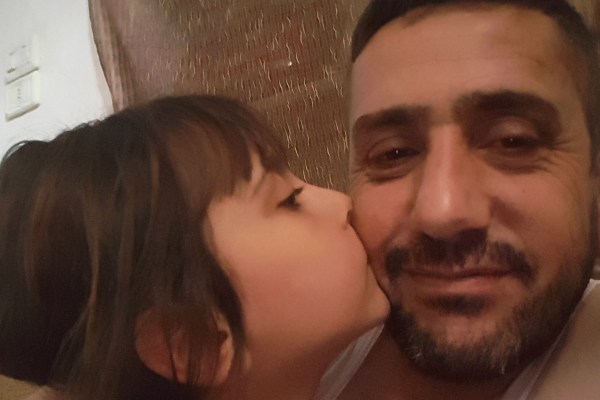 'Ali Abuljud's children ran through the archways of Aleppo, toy guns in hand.
'Ali Abuljud's children ran through the archways of Aleppo, toy guns in hand.
They took pretend shots at each other across the courtyards. One child poked at his brother's back with a plastic rifle.
"Come on and walk with us," he said, leading his brother away to a fake jail.
It's a version of the cruel scene they had grown accustomed to seeing in the war-torn Syrian city.
"We are the children of the Syrian Revolution," one of the kids said. "We're recreating everything happening in the city, and the things people are doing."
Chants of "Allahu Akbar" — or "God is great" — followed.
But only a few days later, there would be no more games.
A barrel bomb struck around 3 a.m. on Saturday, killing the four siblings: Aysha, 12, Mohammad 11, Obeida, 9, and Afraa, 7.
Abuljud implored his friends not to focus on his children's death.
"Don't look at this generation like this," he said. "This generation looks up in the sky and sees these Russian airplanes [backing Syrian President Bashar al-Assad], just looking up in the sky as they drop bombs. This generation is going to be titans! I swear they will never be afraid of anything, thank God!"
As Abuljud walked back to what was left of his home, he said he did not want the world to feel sorry for him.
"I want our voices — not just my voice — but for all of our voices to reach the entire world," Abuljud said.'
